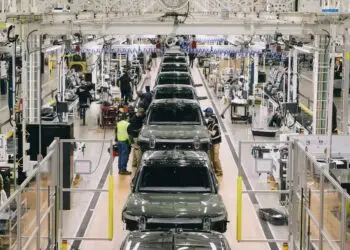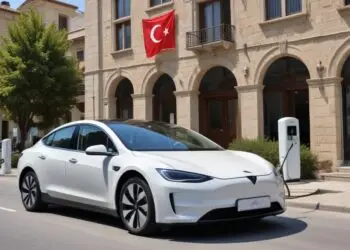Stellantis, the multinational automotive giant and owner of brands such as Vauxhall, Peugeot, and Citroën, has issued a stark warning to the U.K. government. The company has threatened to cease vehicle production in the United Kingdom unless the government revises its stringent electric vehicle (EV) sales mandates. This announcement comes at a critical juncture, with the U.K. approaching a general election and the automotive industry grappling with the transition to electric mobility.
The EV Sales Mandate
The U.K. government has implemented ambitious targets for selling zero-emission vehicles (ZEVs). Under the current regulations, 22% of new car sales for each manufacturer must be zero-emission vehicles by the end of 2024, with this figure set to rise to 80% by 2030. Additionally, 70% of new van sales must be electric by the same year. These mandates are part of the U.K.’s broader strategy to phase out the sale of new petrol and diesel vehicles by 2035.
Stellantis' Concerns
Maria Grazia Davino, Stellantis’ U.K. Managing Director, has expressed significant concerns about the feasibility of meeting these targets. Davino emphasized the difficulties of current market conditions while speaking at a conference that the Society of Motor Manufacturers and Traders (SMMT) hosted in London. She noted that the demand for electric vehicles must still be robust enough to meet the mandated targets with substantial government support.
Potential Impact on U.K. Production
Stellantis has heavily invested in its U.K. operations, particularly in producing electric vans. The company has converted its Ellesmere Port facility into an electric-only plant with a £100 million investment. It plans to start manufacturing electric vans at its Luton plant in 2025. Despite these investments, Davino warned that Stellantis might have to halt production in the U.K. if the market conditions do not improve.
Government Response and Industry Implications
The industry is awaiting a response from the U.K. government to Stellanti’s ultimatum. The automotive industry is closely watching the situation, as Stellantis’ decision could have far-reaching implications. The potential closure of Stellanti’s U.K. plants would affect the company’s operations and significantly impact the local economy and employment.
The Broader Context
Stellantis’ warning comes amid a broader debate about the pace and feasibility of the transition to electric vehicles. While the European Union allows automakers to meet CO2 emissions reduction targets through a mix of hybrids and EVs, the U.K. mandates a minimum percentage of fully electric cars. This difference in regulatory approach has added pressure on automakers operating in the U.K.
Stellantis’ threat to halt U.K. production underscores the automotive industry’s challenges in transitioning to electric mobility. The company’s call for more government support highlights the need for a balanced approach considering environmental goals and market realities. As the U.K. approaches a general election, the future of its automotive industry hangs in the balance, with the outcome likely to shape the country’s path towards a sustainable transportation future.









